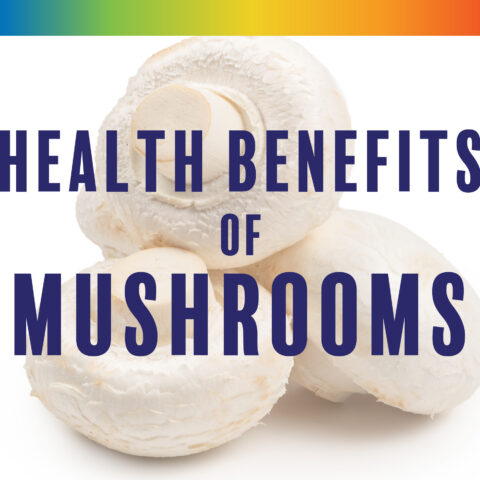What Science Really Says About Eggs and Heart Disease

If you’re new to The Paleo Diet®, you’re likely in the process of learning which foods are Paleo and which are not. While some foods are easily recognizable as Paleo, others are a bit more challenging or controversial. And there are few foods that spark more health arguments than eggs.
Since nutrition research can often be contradictory or hard to interpret, it can be difficult to know whether or not eggs are Paleo. So, what does the research say about eggs, and what do we at The Paleo Diet have to say about them?
Eggs Are Not Bad for Your Heart
Eggs have long been blamed for adverse health effects and heart disease due to their higher cholesterol content. However, when eaten in moderation, eggs have been shown to be protective of the heart, not detrimental to it. A new study published in Heart followed half a million Chinese adults and found that eating one egg a day was actually protective for heart health. [1]
As for the cholesterol problem, research from 2018 found that the cholesterol found in eggs is actually poorly absorbed and does not increase blood levels of cholesterol. [2] This has been verified more than once: An article from Nutrients in 2019 stated that there is no evidence of eggs contributing to elevated levels of cholesterol and that they’re such a nutrient-dense food that they should be studied even more to understand the full range of their potential benefits. [3]
Nutritional Benefits of Eggs
Eggs are, indeed, Paleo; and they are a nutrient-rich source of vitamins and minerals. While there are different varieties of eggs, they generally contain about 6 grams of protein and fat. Plus, they provide 24 percent of your daily value of selenium, 20 percent of vitamin B2, 20 percent of vitamin B12, 12 percent of vitamin B5, 10 percent phosphorous, 9 percent vitamin A, and 6 percent vitamin D. In a tidy 68-calorie package, eggs pack a lot of nutritional value.
Furthermore, eggs contain all the essential amino acids and are fairly easy to digest. (That, of course, isn’t true for people who have egg allergies. Eggs are in the “top 8” allergens and should be avoided by anyone who is allergic—allergies are typically to the proteins found in the egg whites.)
Should You Eat Eggs?
If you are not allergic to eggs, the general consensus is that they’re a great Paleo food with plenty of nutritional benefits. But how many eggs should you eat? And how often?
Research on those questions is mixed. While the above study found benefits from consuming one egg per day, others have noted that a higher intake of eggs is associated with lower levels of cholesterol—eating them frequently or in higher quantities doesn’t negate health benefits. [4]
There is also plenty of research that suggests limiting eggs is better, but this tends to be older and still of the mindset that dietary cholesterol is harmful to cardiovascular health.
Ultimately, the ways in which eggs impact your health depends on how you digest them, and whether you might be allergic. You can also have a non-allergenic sensitivity to eggs—in that case, you might notice digestive discomfort or skin-related symptoms like eczema. [5]
The Best Ways to Eat More Eggs
If you’re looking for eggy inspiration for the most important meal of the day, try any of these great recipes:
The Bottom Line
Generally speaking, eggs contain plenty of health benefits. As with all foods, pay attention to how you feel when eating them. If you love eggs and don’t suffer from any allergies or sensitivities, they’re a great nutritional addition to your Paleo diet.
References:
1. Qin, C., Lv, J., Guo, Y., Bian, Z., Si, J., Yang, L., Chen, Y., Zhou, Y., Zhang, H., Liu, J., Chen, J., Chen, Z., Yu, C., Li, L., & China Kadoorie Biobank Collaborative Group (2018). Associations of egg consumption with cardiovascular disease in a cohort study of 0.5 million Chinese adults. Heart (British Cardiac Society), 104(21), 1756–1763. https://doi.org/10.1136/heartjnl-2017-312651
2. Kim, J. E., & Campbell, W. W. (2018). Dietary Cholesterol Contained in Whole Eggs Is Not Well Absorbed and Does Not Acutely Affect Plasma Total Cholesterol Concentration in Men and Women: Results from 2 Randomized Controlled Crossover Studies. Nutrients, 10(9), 1272. https://doi.org/10.3390/nu10091272
3. Réhault-Godbert, S., Guyot, N., & Nys, Y. (2019). The Golden Egg: Nutritional Value, Bioactivities, and Emerging Benefits for Human Health. Nutrients, 11(3), 684. https://doi.org/10.3390/nu11030684
4. Magriplis, E., Mitsopoulou, A. V., Karageorgou, D., Bakogianni, I., Dimakopoulos, I., Micha, R., Michas, G., Chourdakis, M., Chrousos, G. P., Roma, E., Panagiotakos, D., & Zampelas, A. (2019). Frequency and Quantity of Egg Intake Is Not Associated with Dyslipidemia: The Hellenic National Nutrition and Health Survey (HNNHS). Nutrients, 11(5), 1105. https://doi.org/10.3390/nu11051105
5. Caubet, J. C., & Wang, J. (2011). Current understanding of egg allergy. Pediatric clinics of North America, 58(2), 427–xi. https://doi.org/10.1016/j.pcl.2011.02.014
Aimee McNew
Aimee McNew is a nutritionist and writer who focuses on women’s health, infertility, and postpartum wellness.
More About The Author




